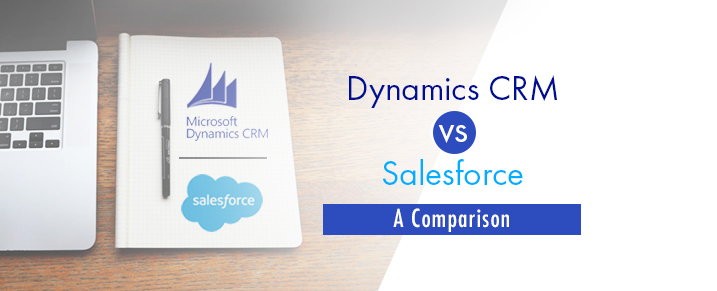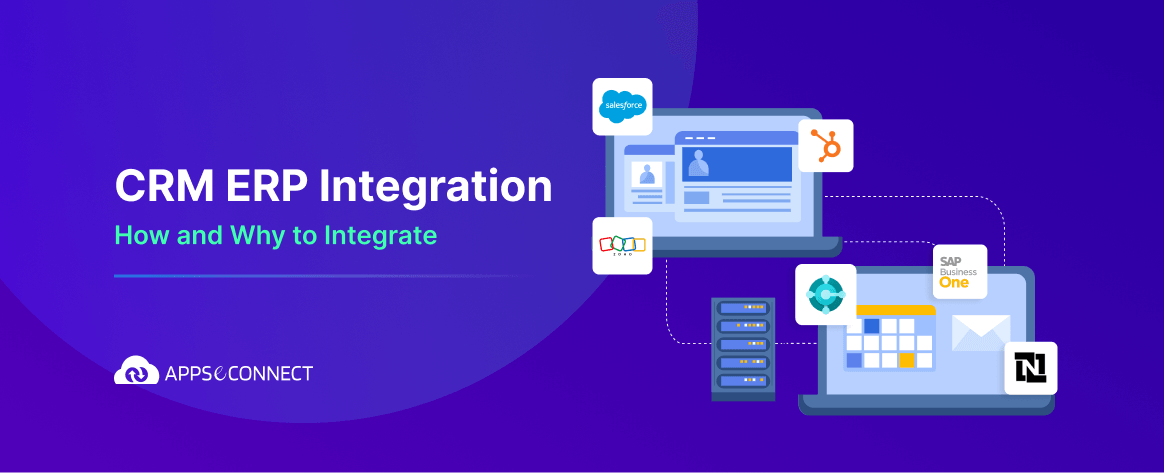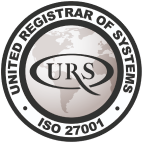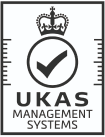
Is American English better than British English? Is French poetry more beautiful than English poetry? Is summer always better than winter?
If these questions do not make sense, arguments regarding why Microsoft Dynamics CRM is inherently better than Salesforce CRM or vice versa do not make sense either. You get the idea. The answer to all these questions is, it depends on what you want, what you need, and what you like.
If you are planning to invest in one of these two CRMs and perhaps integrate it with other automation software like an ERP, do not worry. We will look at advantages and disadvantages of both Dynamics CRM and Salesforce, and help you make a decision based on your business’s unique requirements. Here is a comparison between the two CRM giants.
- UI/UX
Dynamics CRM is easy to use, and has a contemporary design. Its mobile applications are particularly well received by users and is praised for being process-driven. Dynamics is perceived as easier to use mostly because people are familiar with Microsoft’s software.
Salesforce is often described as difficult to use, but the company recently won a Red dot award for its design concepts. With a more focused approach on interaction, Salesforce may soon overtake Dynamics with respect to UX/UI.
Winner: Microsoft Dynamics CRM, on the surface. However, Salesforce can easily be customized for a better interface, and it has even begun to win awards for its initiatives.
- Collaboration
Dynamics allows you to use collaboration and social tools such as Yammer, Skype, SharePoint and Office 365 without any difficulties. This helps you to access conversation archives and share screens, if you are collaborating within or outside teams.
Collaboration is in-built within Salesforce and you can access the latest updates from people who matter. Organizational knowledge is captured in a single location and you can track teams, progress and collaborate like never before. Tools such as Yammer, Skype and other collaborative applications can easily be integrated into Salesforce.
Winner: It is a tie between Salesforce and Dynamics, as both let you collaborate with the help of third party apps.
- Productivity
Many people believe Microsoft Dynamics CRM promotes productivity vat workplace because employees tend to be familiar with Microsoft’s applications. This may partly be true, and there is no evidence to suggest that this is a rule always. There are many people who have never used a Microsoft application in their lives, and have been perfectly happy on Linux and Mac systems.
Salesforce is often described as a more difficult and times-consuming tool, driving down employees’ motivation. Again, this is an anecdotal tale that is often repeated. Many people who use Salesforce continue to use it efficiently and those companies often do not think of switching over to another CRM.
Winner: Dynamics CRM can be more familiar to many employees, but Salesforce can be easily used too.
- Cost
Dynamics CRM has a lower cost potential than its peers. Many companies that seek to reduce IT costs may find Dynamics pricing strategy more attractive. However, there are a few features that are not great on Dynamics, such as data governance tools, partner management and performance management.
Salesforce tends to be a more expensive and high-end solution than Dynamics. Third-party apps require licenses which cost money, and thus costs kind of increase when we choose Salesforce over Dynamics. Customizing the tool will cost a little more money too, as it requires special programming skills in Apex.
Winner: Dynamics CRM is less expensive than Salesforce CRM.
- Deployment
Microsoft Dynamics supports various deployment models such as online, hybrid and on-premise. This may be an advantage but when you look closely, it provides for opportunities where businesses make the mistake of holding all their data on-premises, or multiple copies on-premise and in the cloud.
Salesforce offers its services and products as Software as a Service (SaaS), over the cloud. This ensures that deployment is clean, and multiplicity of files is avoided. If you plan to integrate Salesforce with a different tool or app, having all your data in one place helps.
Winner: Salesforce offers a cleaner deployment, and avoids confusion. Microsoft Dynamics CRM offers more options, and that is not always good.
- Customer Service
Microsoft Dynamics has a great customer support package, and its community is very helpful too. As this tool encourages strong customer relationships, it enhances engagement and communication.
Salesforce does not have a large support system like Dynamics, but this has not stopped anybody from seeking the support they need. Salesforce provides timely and helpful support to its customers, and social media engagement helps you to interact with your own customers.
Winner: both the tools offer great customer service, and it is almost a tie.
- Data Privacy and Trust
All the data in Dynamics CRM is stored in SQL, which is quite popular among professionals today. This is because, it is widely believed that SQL is easier to deal with when it comes to integrations with other applications. Dynamics CRM also is popular because it owns its own data-centers and offers financially backed SLAs.
Salesforce uses Oracle database for all data requirements, which for some reason is not very popular among programmers. The reason could be, there are far fewer professionals trained in Oracle databases than in SQL, which again tells us that it is not the quality of these software tools that need to be questioned, but the skills of IT professionals who are hired. Data stored in Oracle databases can just as easily be transitioned and integrated as data stored in SQL. Salesforce data centers are located in the USA and Asia.
Winner: On the surface, Dynamics CRM seems easier to handle, but Salesforce is robust and secure too.
- Customizability
Microsoft Dynamics can be customized by more number of programmers, simply because it is written in more popular languages. This does not mean it is inherently superior to other CRM tools that are available. It just means most vendors prefer working with Dynamics simply because it is easier for them.
Salesforce customization kit is very specific, and requires more skills to customize. This may drive up the costs of implementation, but considering the comprehensive quality of this tool, it still makes a viable option. Salesforce can also be integrated with a number of third-party applications, depending on your requirements.
Winner: Both Salesforce and Dynamics CRM can easily be customized.
- Upgrades
Dynamics does not roll out frequent updates, and when software needs to be updated, it often asks first. They are released as significant patches that can be customized, which are planned well in advance, much like how Apple releases iOS updates. This is good in a way, but immediate concerns are often ignored.
Salesforce releases new updates and upgrades continuously, and thus security loopholes are often addressed immediately. This is an advantage that many people tend to ignore. However, accepting these updates and upgrades on an on-going basis may annoy some people. However, if you want stability, security and great performance, regular updates released in small packages is often a good thing.
Winner: Salesforce takes care of updates on an on-going basis, whereas Dynamics CRM releases large patches occasionally.
- Integration
Integrating Dynamics CRM with other tools isn’t difficult. This is an easy tool which can be customized and integrated with third party applications easily.
Salesforce often poses challenges to vendors who are not experienced in working with it often. However, if you can find someone who is well-versed in integrating Salesforce with other applications, it can be a satisfying experience.
Winner: If you choose the right vendor, integrating Dynamics CRM and Salesforce with other applications is equally easy. So, this has to be a tie.
At the end of the day, both the CRMs are great choices with minor differences in cost and features. Features that are lacking in either of the CRM can be added through third-party app integration. Both Dynamics CRM and Salesforce CRM can be and should be integrated with other enterprise software like ERP, ecommerce, and others in order to boost performance and efficiency. If you would like to learn more about which CRM you should choose, or how you can integrate them with other enterprise tools, do not hesitate to contact us.
You may also like:
20 Ways CRM Is Going to Change Lead Generation in 2018
Salesforce Duplication Rules – Make them your best friend!
Salesforce Lightning New Features and Updates





















